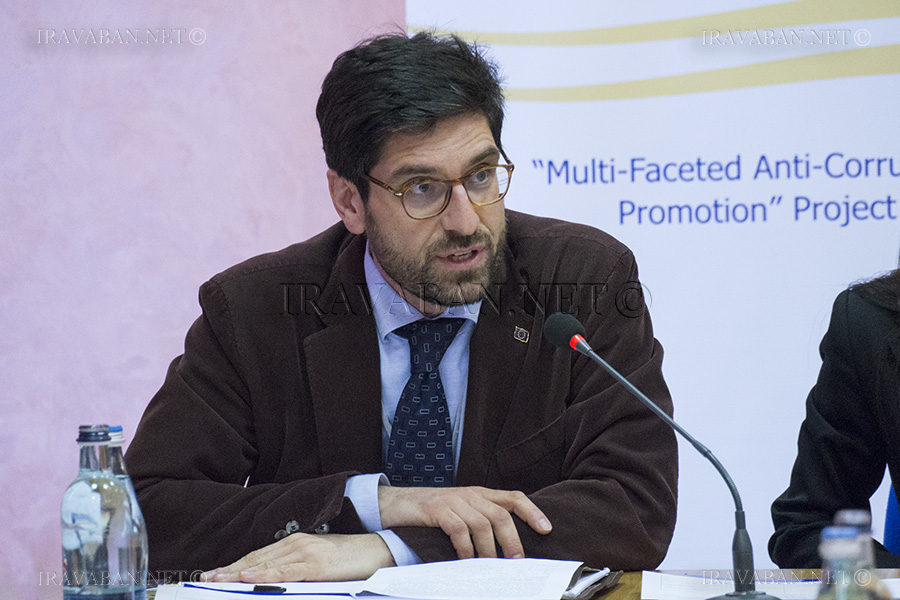“In order to achieve success in the fight against corruption it is necessary to work in two directions,” Mr. Alessandro Zanotta, International Aid/Cooperation Officer of the Delegation of the European Union to Armenia mentioned at the workshop “Private Sector Face to Face with the Contemporary Challenges of Anti-Corruption Fight.”
First, the Government should undertake active steps: “A certain political task is necessary; without that task the efforts of the civil society and the international partners will be in vain”- Mr. Zanotta said and added that EU encourages the Government to accept the anti-corruption strategy as soon as possible.
Further, the civil society should undertake steps in the face of non-governmental organizations. “The civil society and business community shall confront the challenges as well and the citizens’ opinion audible, alongside with critical requirements and justifications and their thinking.”
According International Aid/Cooperation Officer of the Delegation of the European Union to Armenia, the civil society must work actively: “It cannot passively wait for the Executive power to form the agenda, which will be isolated from the society, so EU is supporting the CSO’s,” Mr. Zanotta emphasized.
Notably, the workshop is held within the frames of “National Integrity System Assessment of Armenia” project, implemented by TIAC with financial support of the EU.
Deputy Minister of Justice Suren Krmoyan, Executive Director of Transparency International Anti-Corruption Centre Varuzhan Hoktanyan and representatives of business sphere took part in the event.
Notably, the Anti-Corruption Council’s first session was held the day before. The session was boycotted by representatives of civil society, who demanded to solve the problem of the creation of multi-faceted professional working group that will discuss two questions; problems concerning institutional systems and illegal enrichment.















